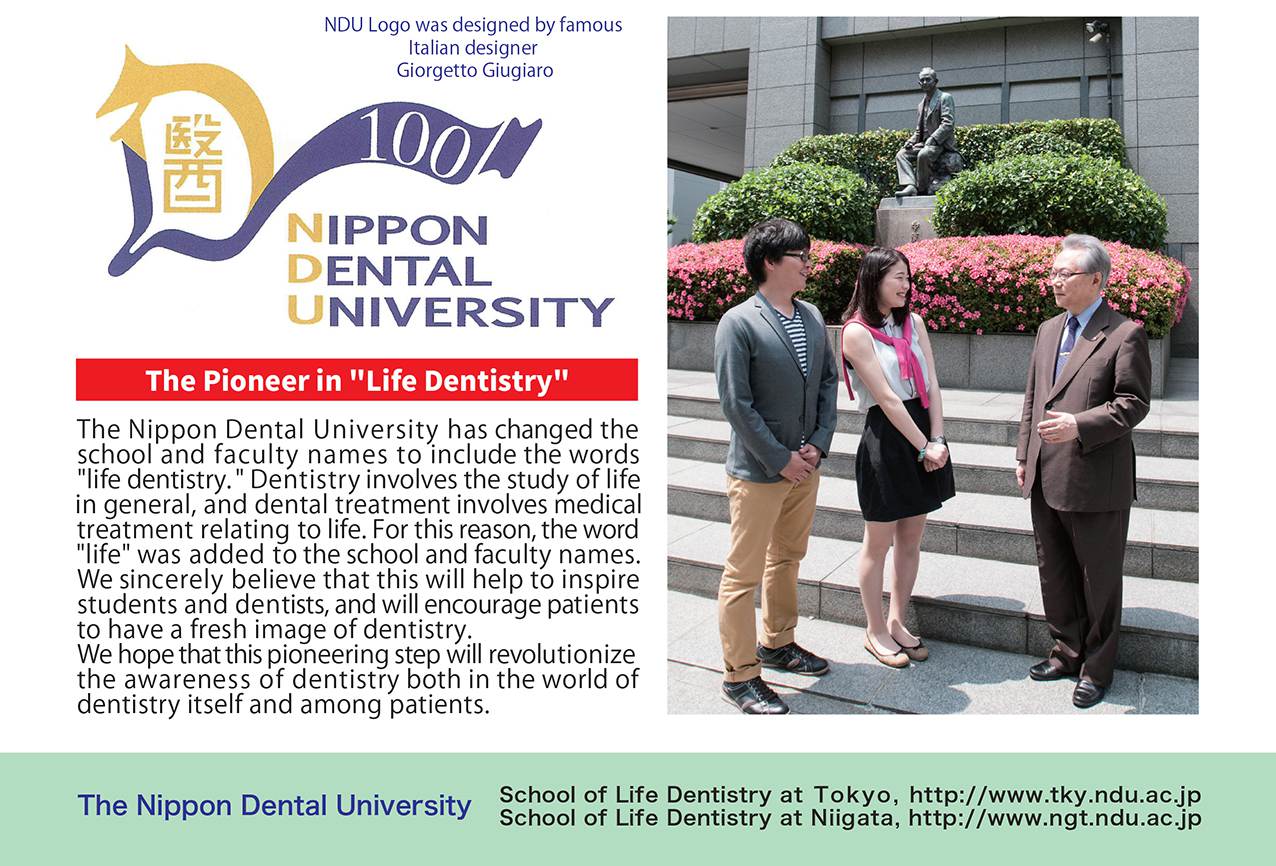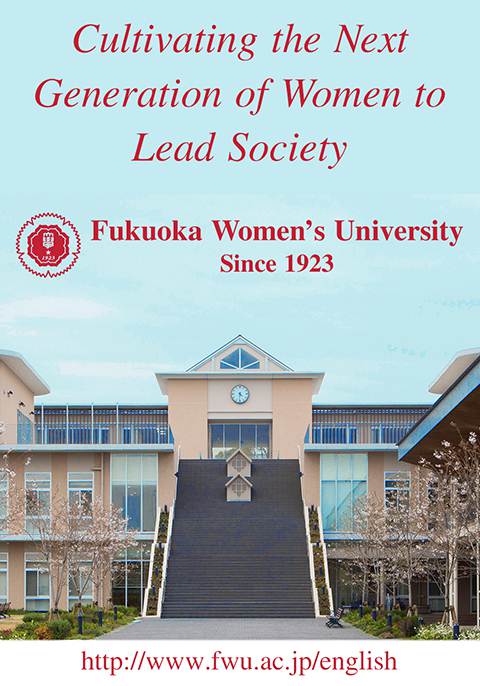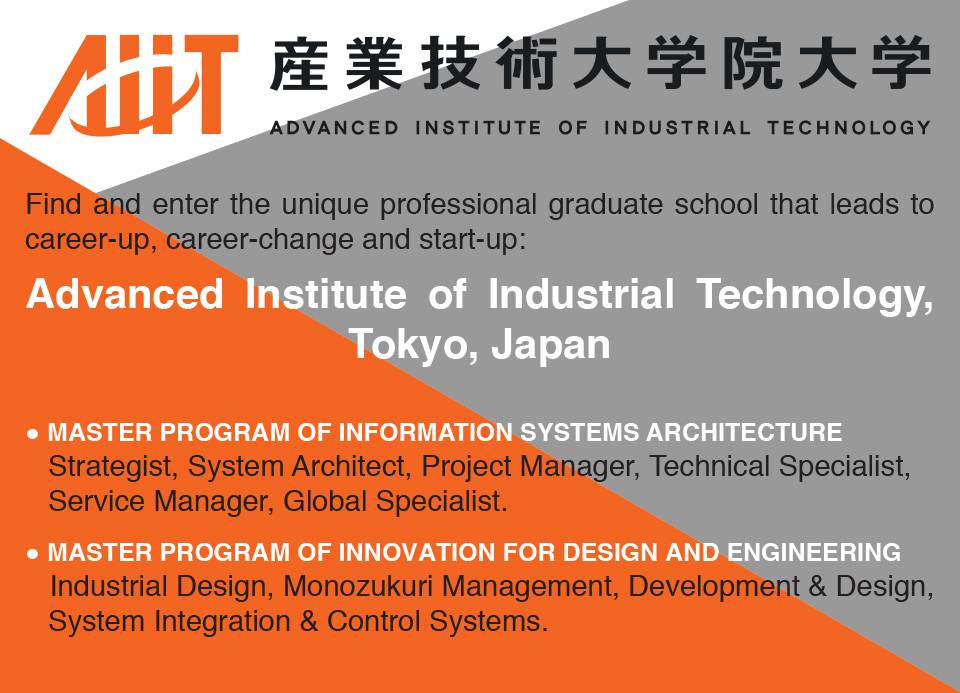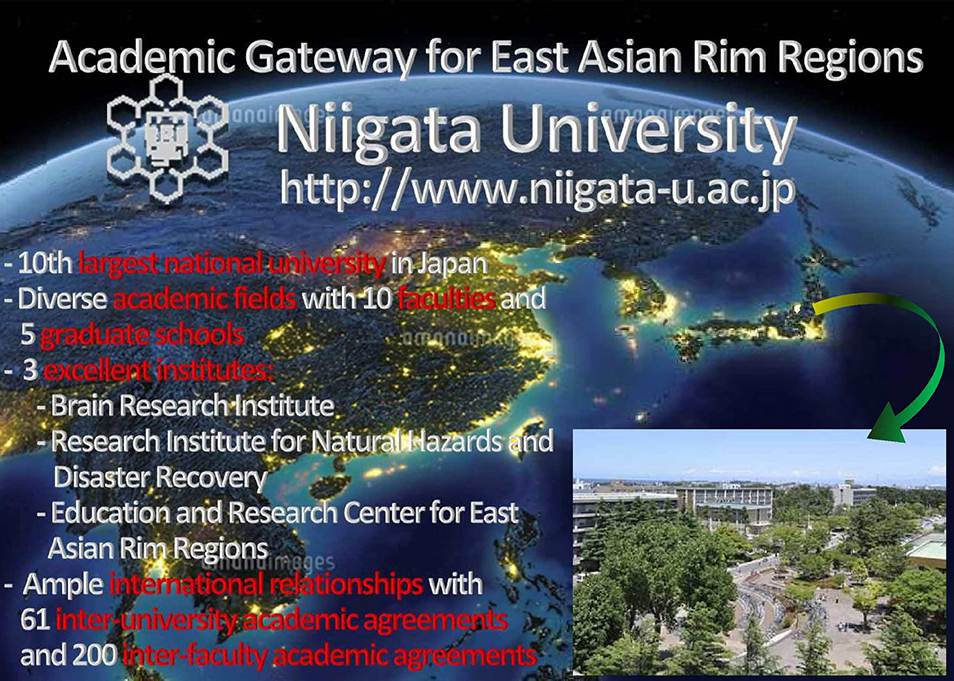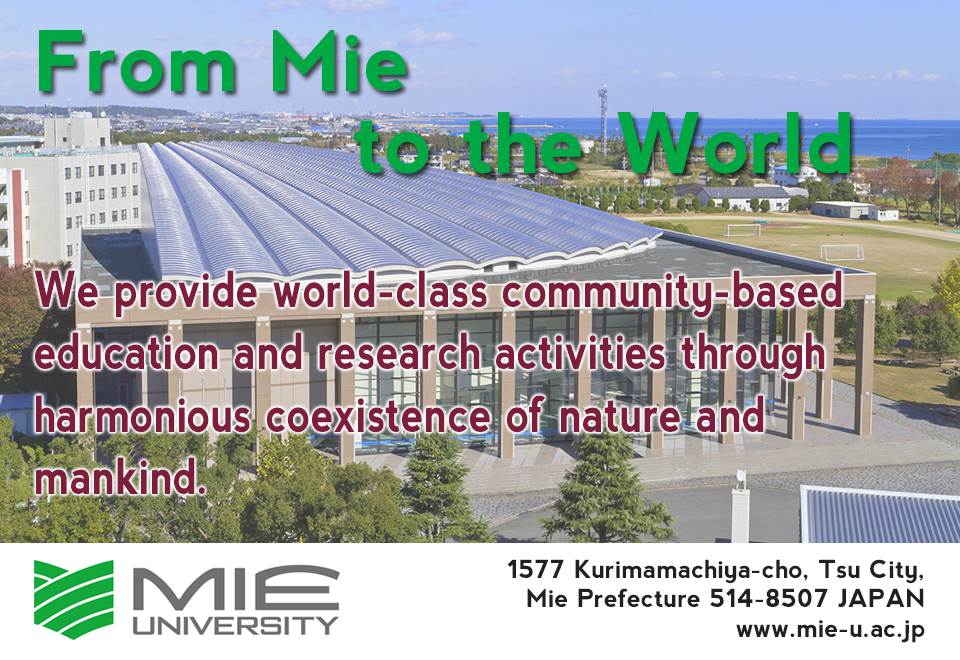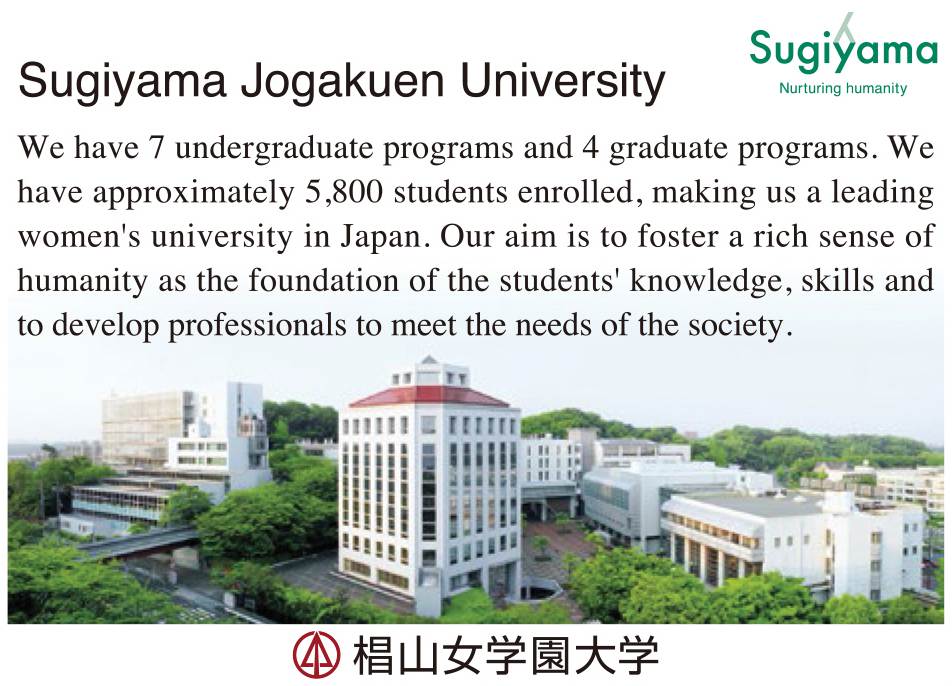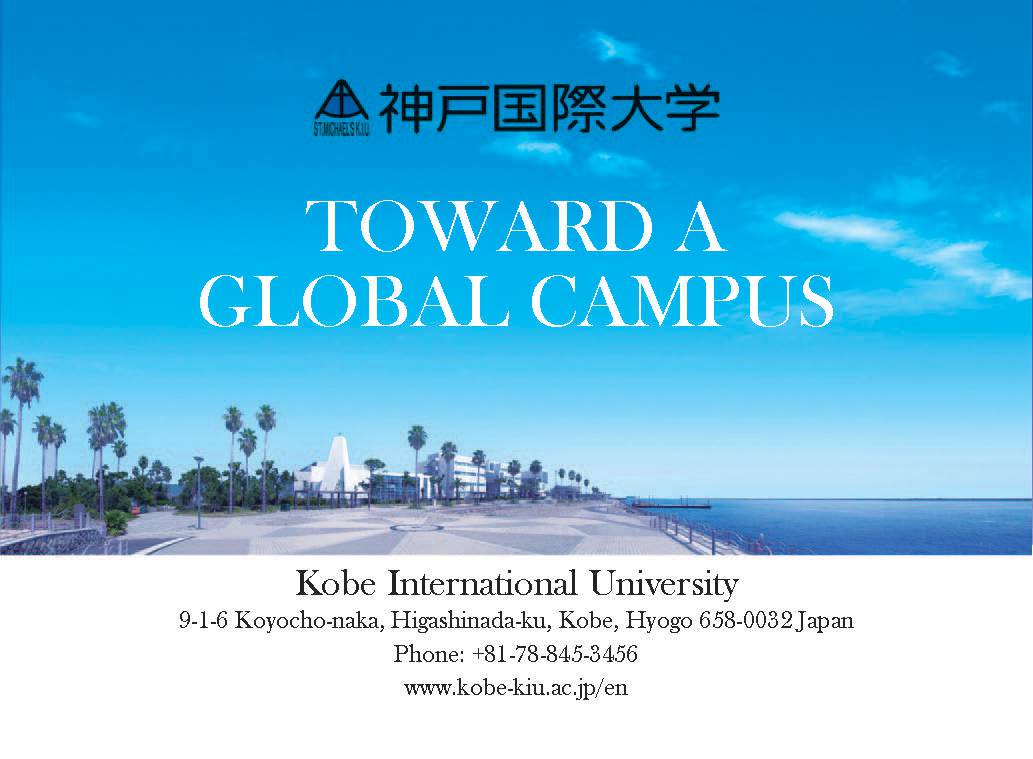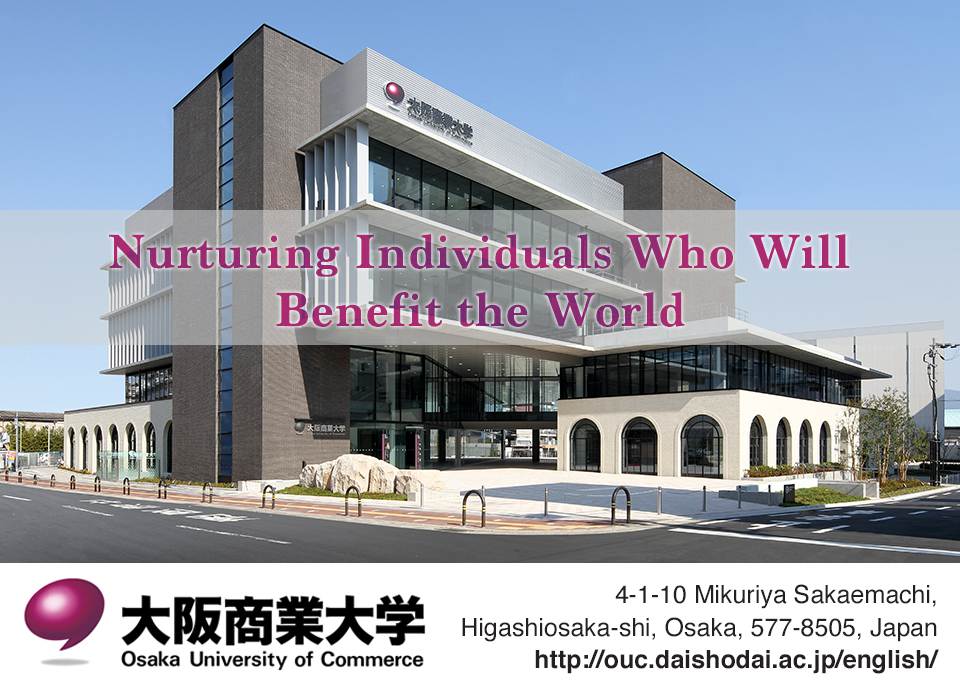In recent years, Japanese universities have stepped up their efforts to reaching out to the Asia Pacific region and beyond. Supported by Japan’s highly industrialized economy, they have also expanded their role as a critical partner to development in other countries.
According to the Organization of Economic Development, as of 2012, 94 percent of foreign students in Japan came from Asia. So 2017 was significant because Japan universities opened new networks in booming regions of Southeast Asia, Central Asia, Africa and the Middle East.

Japan’s global leadership in specialized manufacturing, healthcare and business has helped nurture an intellectually stimulating atmosphere, wherein students can acquire the communication, critical thinking and decision making skills needed in the 21st century.
Innovation through design
One area where Japan’s leading edge shines is in engineering products.
The Advanced Institute of Industrial Technology was set up by the Tokyo municipal government in 2006 to offer a rigorous science education and to train its students on how to quickly apply fast-changing developments in information science and technology.
AIIT President Dr. Seiichi Kawata believes this interdisciplinary approach to information science and technology will further sharpen Japan’s competitive edge in technological innovation.
“In 2008, AIIT established the Masters’ Program for design and engineering in response to the rapid changes in the market, especially in terms of product design. We teach our engineers that human-centric design is just as important as superior build quality,” Kawata explained.
“We keep close contact with Japan’s industry leaders to listen to what they need and the challenges they face. Today, innovation no longer belongs to one person. Innovation becomes more possible with collaboration,” he added.
World-class disaster and emergency response
Japan’s geographic location makes the islands susceptible to natural disasters such as earthquakes and typhoons. Through the centuries, the country has developed survival techniques and now wishes to share the knowledge with other countries facing the same challenge.
“We hope that Nippon Medical School doctors will play a role in international missions and in practical clinics. Across the region, we have shared our top-notch technology with countries that face the same challenges as Japan, such as natural and man-made disaster response. We deployed our team during the 2004 earthquake in Aceh, the 2008 Cyclone Nargis in Myanmar and the 2012 earthquake in Nepal,” said Nippon Medical School President Dr. Akihiko Gemma.
“For us, the development of emergency medicine is important in order to respond to terrorist threats and natural disasters. Japan has hosted and will host some of the world’s most significant events, such as the G-7 summit in 2016 and the Olympic Games in 2020. Because of our strengths in emergency response, the Nippon Medical School Hospital is the most important hospital in Japan, so we must develop this system in order to respond to these challenges,” Gemma also said.
More than medical pioneers
Established in 1907 by Dr. Ichigoro Nakahara, Nippon Dental University has established a reputation as a pioneer in the field of regenerative medicine. Having celebrated its 110th anniversary in 2016, NDU is looking towards the next century by taking on medicine’s greatest challenge: how to regenerate parts of the human body.
And as the number of 65-year-olds and above is predicted to exceed 25 percent of the population by 2025, Japan is seeing the importance of geriatric medicine increasing. Ahead of that demographic challenge, the number of dental treatments of elderly people especially, treatments of periodontitis and dental caries have been growing every year.
“Five years ago, NDU established the world’s first dental pulp cell bank. We see a lot of potential in utilizing the stem cells derived from deciduous teeth (milk teeth) to cure various forms of illnesses. As countries face rapidly changing demographics, regenerative medicine will play a big role in maintaining quality of life,” explained President Dr. Sen Nakahara.
NDU is Japan’s largest dental school with more than 2,000 students, 1,000 teaching staff and 20,000 graduates. It also boasts several international partnerships, among them with the University of Michigan, University of Pennsylvania, University of Maryland, University of Paris, and Mahidol University in Thailand.
But Nakahara sees a larger mission than just being medical pioneers: “Being the largest dental school in the world and developing the field of regenerative medicine, Nippon Dental University recognizes its obligation to society. We established the TAMA clinic in Tokyo, which is the only oral rehabilitation clinic in Japan meant to improve the oral health of elderly and handicapped patients. NDU has also established mobile clinics in Niigata Prefecture in order to reach populations with no access to dental care.
One region that is emerging popular among international students is along Japan’s western coast.
Forming a new role in the future, Niigata University has stepped up efforts to deepen ties with its foreign partners and form new partnerships in Japan, East Asia, and the rest of the world.
“We are welcoming ever increasing numbers of foreign students wishing to study at Niigata University. Many of these international students see Niigata University as a cultural, academic and business hub for study in or about the East Asian Rim regions, and ultimately a gateway to East Asia and the world,” said President Sugata Takahashi.
“We hope not only Japanese students, but also East Asian students and students from other areas of the world, will obtain the knowledge and skills they need for their future at Niigata University. Students and researchers alike can expect Niigata University to be a vibrant hub of academic activity,” Takahashi said.
Nurturing global citizens
As the only national university in the prefecture, Mie University is committed to solving problems in rural areas around Japan. Because more than two-thirds of its graduates leave the area to seek work in larger cities, the university works closely with the local government, institutions and businesses to encourage its students to stay and contribute to the sustainable region’s development.
“Young students play a very important role in Mie. To entice them to stay, we are revitalizing the system to ensure good education and quality research,” President Yoshihiro Komada said.
The university has partnerships with more than 100 international schools across Asia, Africa and the rest of the world. It also has set up unique research institutes, such as Ninja Studies and Whale Research, which have attracted foreign students.
In recent years, Mie University opened several satellite offices to promote itself and strengthen cooperation with other universities and companies. By doing so, the school hopes to broaden the worldview of its students by teaching them about regions that are very different from theirs.
“We are fostering the future community leaders through this global education,” Komada said.
Raising the profile of women
One of the aims of Abenomics is to increase the role of women in the working world. In OECD’s latest available statistics, 61 percent of women aged 24 to 34 did well above the OECD average (45%) and better than Japanese men of same age with the same level of education (56%).
But significant challenges remain to fully integrate women into working society. Japanese tertiary institutions are doing their part.
Sugiyama Jogakuen’s 111-year history traces its roots as a sewing school for women. After the Second World War, the school became a full-fledged college with a new mission to equip women with skills and knowledge to meet the demands of the 21st century.
University President Kimio Morimune believes that the institution must expand its mission beyond education and become a huge contributor to the ongoing global debate over the evolving role of women in society.
Morimune noted: “Now more than ever, there’s a need for action to create a bigger role for women in Japanese society. We can only attain clear visibility of Japan’s future once women form part of that vision.”
While the all-women school accepts a small number of international students, it wants to partner with more universities abroad for student exchange programs.
“Our professors are our ambassadors. When foreign students come here, they enjoy the experience because the school takes very good care of international students and encourages them to interact with the locals and work together,” he said.
Fast-forward Fukuoka
Due to a dynamic population and an aggressive focus to become a center of entrepreneurship, Fukuoka has attracted many young people, both Japanese and foreign. In fact, the city is home to more foreign students per capita than anywhere else in Japan.
Fukuoka Women’s University is one such university where foreign students get to experience Japan through its unique housing set up.
Fukuoka Women’s University opened its doors in 1923, as Japan’s first public college and later, in 1950, became a full-fledged university. In addition to its broader mission of forming globally-minded students, the university does not neglect the nurturing of the “heart.”
President Tisato Kajiyama has placed great importance on emotional intelligence or kansei, which means “sophisticated feelings” in Japanese. “High grades are important, of course. But we further equip our students to embrace a more globalized future by being aware of diversity. We are surely the only college in Japan to emphasize the importance of kansei in education and campus activities,” he explained.
While more than 70 percent of its students have experienced studies abroad, the university also introduced mixed nationality dormitories to further complement its efforts to internationalize the learning environment.
“The students not only learn English with their foreign peers but, through the shared housing set up, they live and breathe the language. This transforms our students in so many ways, such as honing a spirit of nurturing and emotional intelligence,” Kajiyama said.
A global campus in Kobe
Ever since its foundation, Kobe International University has prioritized internationalization. As of 2017, around 28 percent of its freshmen were foreign students, while 10 percent of its Japanese students have joined overseas programs. To further raise those numbers, KIU has partnered with several international universities to allow its students to take fully-credited courses abroad.
“My idea of a global campus is to share our campus and academic programs with our worldwide partner universities. Thus, all the prospective students can participate in them according to their needs. KIU’s aim is to grow together with our partners, learn from them, develop new programs and finally innovate a new era of global education,” President Yuki Shimomura said.
As KIU marks its 50th anniversary in 2018, Shimomura said the school will continue its internationalization program.
“Globalization is not new to us. In the next years, we hope to find more partners with whom we can grow and work together to create an actual ground for globalization,” he said.
Revitalizing Japan’s shonin spirit
The Kansai Region is the home of Japanese industrial giants, such as Panasonic. Composed of Osaka, Kyoto and Kobe, the region is a major trading hub and traces its roots to Japan’s shonin or merchant class that propelled the country to rapid industrialization.
The Osaka University of Commerce has stayed true to its origins by creating an environment that is very conducive to molding Japan’s future leaders in trade and commerce.
“A large number of Japan’s CEOs came from our school, which reflects its reputation as a world-class institution. Moreover, as Japanese companies continue to expand overseas and in new markets, we invite students from these countries to experience Japan and learn the Japanese way of doing business. Doing so would enhance communication and would benefit regional development and partnerships with Japan,” President Dr. Ishiro Tanioka said.
